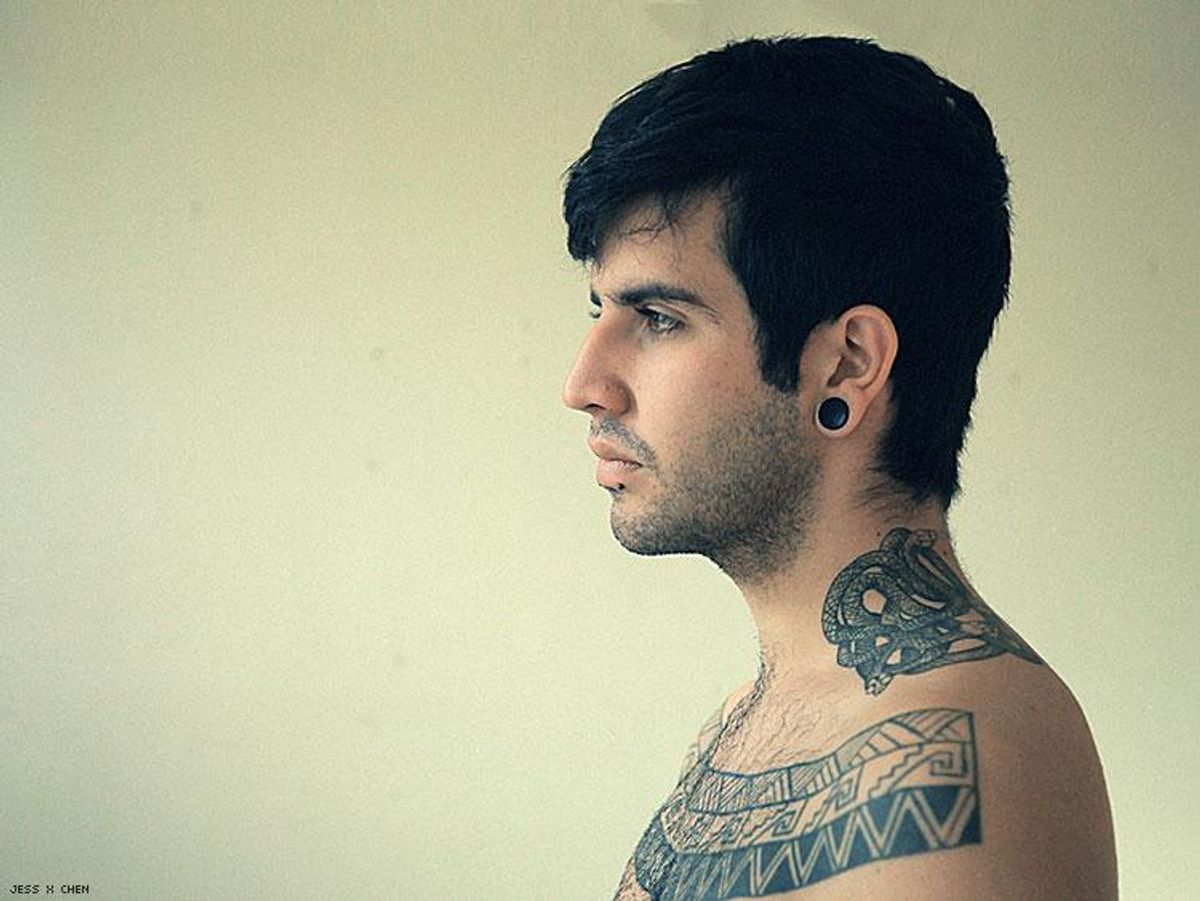As a teenager, I faced domestic violence in my household. I would often run away from home, spending the night in my car, at the church, with a friend, or on a park bench. I would go anywhere to escape. I never knew whether my father would kill me in my sleep or kill himself. Sometimes I refer to those years as homelessness and sometimes I refer to them as housing instability. What is a home if you do not feel safe in it? Now I am an adult and following my literary dreams.
Recently, I finished my degree in poetry from New York University. where I had the privilege of studying under some of my favorite poets, such as Eileen Myles and Yusef Komunyakaa. I also recently released my first poetry chapbook, Sad Girl Poems (Sibling Rivalry Press, 2016). Yet no matter how much I grow and change, I can never forget my roots, my struggles. This year, I decided to take my poetry chapbook on a national "Tour to End Queer Youth Homelessness."
I am writing this article from the lounge at Los Angeles International Airport; last week I was in Chicago, soon I will be in Brooklyn. I am speaking at universities, bookstores, living rooms, anywhere I can in order to raise consciousness about the issues facing queer homeless youth. I am also donating funds to support direct services for homeless queer youth.
On the tour, I keep repeating statements like "The most common reason for youth becoming homeless is that they come from homes where their parents were either unable or unwilling to care for them," according to Larkin Street Youth Services. Sometimes I say, "Forty percent of homeless youth identify as LGBT," according to the Williams Institute. I remind people that we need to fight homophobia and transphobia within the heteronormative household. I remind people that we need more beds in homeless shelters, and we need to decriminalize sex work and drug use (which disproportionately affect homeless queer youth who may be forced to seek alternatives incomes in order to survive). I repeat a need for job opportunities, a living wage, and education.
During parts of the tour, I have also talked about the histories of resilience among by homeless queer youth. I've been trying to resist the narrative of homeless queer youth as passive or lacking agency. I remind people that homeless queer youth have been at the forefront of movements toward queer liberation, since before Stonewall and the Compton's Cafeteria riots. In San Francisco, homeless queer youth were doing political organizing work against police harassment as a contingent named Vanguard, as discussed in Jennifer Worley's essay in Captive Genders. In New York, with Sylvia Rivera and Marsha P. Johnson, homeless queer youth were empowered through Street Transvestite Action Revolutionaries.
When starting this tour, I had no idea who was going to show up at these readings and lectures. I was afraid that my words were not going to reach the populations that I have been writing about, living among, surviving with. Thankfully, this fear was not realized. Homeless queer youth, trans and gender-nonconforming people of color, prison abolitionists, and undocumented writers have approached me after my readings. These are all communities I have worked with previously. People have given me their love and affirmation and trusted me with their stories. I am thankful.
Sometimes I stumble and misspeak at readings. Sometimes people discredit my work online. This makes me want to stop touring and speaking publicly. My friend Cathy Linh Che told me last week, "You're allowed to be human. You can make mistakes." I am learning on this tour and making mistakes and trying to remember how important it is for my voice to speak. Audre Lorde once wrote, "when we speak we are afraid / our words will not be heard / nor welcomed / but when we are silent / we are still afraid / so it is better to speak / remembering / we were never meant to survive."
Most times, I'm not sure what impact this tour will have. The funds I raise or consciousness I raise will not be enough to end queer youth homelessness. I know that. No singular individual or art form can end queer youth homelessness. I believe that it takes the whole community to speak and act, to help the people who are most marginalized by society -- the outcasts and disenfranchised youth. I believe in poetry and literature as one of many tools that can be used to create change in this world. I believe in doing my part with the resources that I have; then, maybe, collectively we can make a larger difference.
At a minimum, this tour has created a change within me. For the past four months, I had no income or financial support and was on the verge of being unable to pay rent. This tour was one factor that helped me keep a roof over my head. I have since began full-time employment. This tour has also reminded me about the power of my voice. I have been speaking and educating people all over the country. I have been reciting statistics and poems and engaging in critical conversations with various communities across the country. It feels good to be a survivor, to be living and impacting the world in a meaningful way.
--
If you would like to book tour dates for your university or organization, check my website, ChristopherSoto-poet.com, for further information. If you would like to provide financial support directly to organizations that serve homeless queer youth, please consider making a donation to the Ali Forney Center in New York City.
Photo of Christopher Soto by Jess X Chen. See more of her work here.


















































































Viral post saying Republicans 'have two daddies now' has MAGA hot and bothered